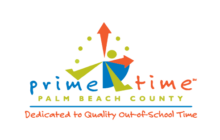9:00 am - 11:00 am
It was a great experience, I learned a lot. It gave me the opportunity to see some areas where I need to work to better my leadership and my program!
Lorena DAfterschool Professional
Engaging Youth in Summer Programs Through Community Building and Fun Learning Activities – IN-PERSON
Continue the learning and fun for youth in the summer by gaining tips, strategies, and activities around building community, forming cooperative learning groups while maintaining social distancing and setting up your summer program for success with guidelines and expectations. Join us for an interactive training where we will practice fun activities and welcoming rituals to help youth experience safety and belonging in your summer program.
Upon successful completion of this training, the participant will earn 2 clock hours (.2 CEUs) of training.
Training Objectives:
Participants will:
- Describe the ways in which they can build community with youth while staying safe.
- Practice welcoming rituals that help youth feel a sense of belonging.
- List a variety of group formers and structures that help meet the social and intellectual needs of youth.
Core Knowledge, Skills and Competencies Addressed (CKSCs):
Learning Environments and Curriculum
Physical Environment and Activities
Identify – B. Understands how children and youth learn through relationships, activities, play, and other experiences.
Identify – C. – Identifies aspects of a developmentally and culturally responsive environment and learning plan.
Apply – A. – Scaffolds learning experiences and engages children and youth with clear objectives that meet individual needs, interests, and developmental levels.
Apply – D. – Creates engaging, physically, emotionally safe, and inclusive environments to encourage play, exploration, and learning across developmental domains.
Relationships And Interactions with Children And Youth
Enhancing Group Experiences
Identify – A. – Recognizes the impact of group dynamics on learning and development and that working with groups is different from working with individuals.
Identify – B. – Understands the importance of organization and flexibility when working with groups of children and youth.
Identify – C. – Is aware of individual development, interests, age, abilities, and skill levels when grouping children and youth.
Primary QIS Scales Addressed:
I. Safe Environment
I-E. Creating Safe Spaces
II. Supportive Environment
II-G. Emotion Coaching
II-I. Fostering Growth Mindset
III. Interactive Environment
III-K. Sense of Belonging
III-M. Promoting Responsibility and Leadership
III-N. Cultivating Empathy

